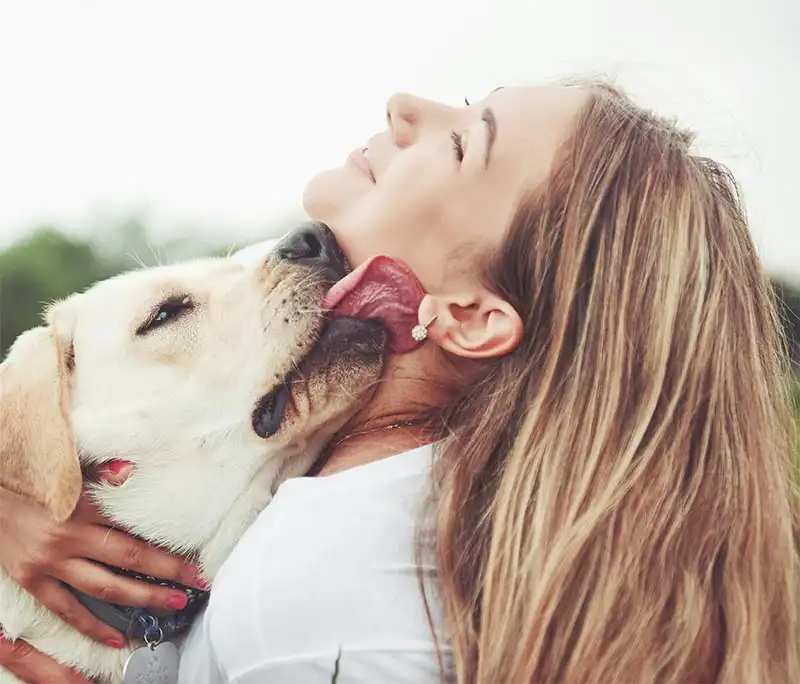
Addiction recovery is a deeply personal journey that often involves a blend of medical care, therapy, lifestyle changes, and community support. In recent years, an unexpected but powerful contributor to this process has gained attention: pets. At West Coast Detox, we recognize the unique and clinically significant role that animals can play in the treatment and recovery from substance use disorders. From providing emotional support to enhancing structure and accountability, pets offer therapeutic benefits that can complement traditional forms of addiction treatment.
Understanding the Emotional Impact of Addiction
Substance use disorders frequently come with a host of co-occurring emotional and psychological challenges, including anxiety, depression, PTSD, and feelings of loneliness or hopelessness. These issues can complicate the recovery process and increase the risk of relapse.
While medications, therapy, and group support are all effective and necessary parts of treatment, many individuals find that something still feels missing. That’s where animals come in. They offer unconditional love, non-judgmental companionship, and a source of comfort that can’t always be replicated through traditional means. For many people, connecting with an animal is the first time they’ve felt safe enough to be vulnerable—a key step in lasting recovery.
The Science Behind Animal-Assisted Therapy
Animal-assisted therapy (AAT) is a structured form of treatment that incorporates animals into the therapeutic process. Studies have shown that interacting with animals can lower cortisol levels, reduce blood pressure, and stimulate the release of oxytocin, the “feel-good” hormone associated with bonding and trust.
In clinical settings, AAT often involves working with trained therapy animals—usually dogs, but sometimes horses, cats, or even small mammals like rabbits. These sessions are facilitated by a licensed therapist and designed to help individuals achieve specific emotional or behavioral goals. Some benefits of AAT in addiction recovery include:
- Reduced anxiety and depression
- Improved emotional regulation
- Enhanced self-esteem
- Increased social interaction
- Development of empathy and trust
Research also suggests that individuals who engage in AAT may show greater engagement in therapy and are more likely to complete treatment programs.
Pets and Structure in Early Recovery
One of the greatest challenges in early recovery is rebuilding daily routines. Substance use often disrupts normal schedules and responsibilities, leaving people with irregular sleep patterns, poor nutrition habits, and inconsistent social interactions. When someone adopts or cares for a pet, they are immediately introduced to a sense of structure. Animals need to be fed, exercised, and cared for at consistent intervals, which encourages the development of healthy routines.
This sense of accountability can be especially powerful for those who struggle with motivation. A pet’s needs don’t take a break because someone is having a hard day, and that consistent responsibility can serve as a motivator to keep going—even when things feel difficult.
Pets as Non-Judgmental Companions
One of the emotional burdens many people carry in recovery is guilt or shame. Past behaviors, broken relationships, or failed attempts at sobriety can lead to intense self-criticism. While therapy works to address and heal these wounds, pets provide a unique kind of unconditional acceptance.
Animals don’t judge people based on their history. They live in the present and respond to how they are treated in the moment. For someone who is used to rejection or criticism, being greeted with joy by a pet can be an incredibly healing experience.
Moreover, pets can help people learn how to build trusting relationships again. The bond between pet and owner fosters emotional intimacy, teaches empathy, and offers the safety of being loved for who you are—not for what you’ve done.
Social Connection Through Pets
Loneliness is both a risk factor for addiction and a common experience during early recovery. Many people find themselves isolated from their former social circles or struggling to build new ones that support their sober lifestyle. Pets can act as social bridges, helping people make new connections in the community.
Walking a dog in the park, visiting a pet store, or joining a pet-related group or class can create natural opportunities for conversation and friendship. These small interactions can snowball into larger social networks that reinforce recovery.
Get Your Questions Answered
Reach out today to get the answers you need about drug and alcohol detox. Our compassionate team is here to guide you through every step of the process and help you take the first step toward recovery.
Equine Therapy: A Unique Path to Healing
One specific form of animal-assisted therapy that has gained popularity in addiction treatment is equine therapy. This involves structured interaction with horses under the guidance of trained professionals. Horses are highly sensitive to human emotions and body language, making them ideal partners in therapeutic settings.
Equine therapy doesn’t require prior riding experience and often includes activities like grooming, feeding, and leading horses rather than riding them. These sessions help individuals develop:
- Patience and mindfulness
- Non-verbal communication skills
- Boundary-setting
- Confidence and self-worth

For people in recovery, equine therapy can be a transformative experience, encouraging emotional growth and reinforcing personal responsibility in a non-verbal, intuitive way.
Dogs in Residential Treatment Settings
At West Coast Detox, we understand the value of integrating pets into residential treatment programs when appropriate. Some treatment centers allow clients to bring their own pets, while others have facility-owned therapy animals that are part of the treatment team.
Dogs, in particular, can thrive in these settings. They offer affection, reduce tension, and create a more homelike environment—especially for clients who may feel anxious or homesick. Having a dog nearby during a tough therapy session or simply sitting in the lounge can create a calming effect that improves the overall treatment atmosphere.
In addition, caring for a dog in rehab teaches time management, consistency, and empathy. These are all skills that support long-term sobriety.
Important Considerations and Boundaries
While the benefits of pets in recovery are numerous, it’s important to approach this area of treatment with intentionality and care. Not every individual is ready for the responsibility of pet ownership during early recovery. In some cases, bringing a pet into the equation too soon can lead to overwhelm or stress—both of which can be triggers for relapse.
That’s why animal-assisted therapy in a controlled environment is often the best first step. Working with trained animals under professional supervision ensures safety and support while allowing clients to experience the emotional benefits of animal interaction.
Additionally, treatment providers must consider allergies, phobias, and cultural attitudes toward animals when designing pet-inclusive programs. A thoughtful, inclusive approach ensures that the presence of animals enhances the treatment experience rather than detracting from it.
Pet Ownership as a Long-Term Recovery Goal
While having a pet during treatment might not be feasible for everyone, it can serve as a motivating goal for the future. Many individuals in recovery express a desire to adopt a pet once they’ve stabilized their sobriety and regained independence. This goal can symbolize readiness for responsibility, a desire to nurture, and a step toward building a meaningful and connected life.
Treatment providers can support this by helping clients prepare for future pet ownership. Discussions might include:
- Budgeting for pet care
- Time management
- Healthy routines
- Stress management techniques
This future-focused approach can serve as both an incentive and a practical way to continue developing recovery skills.
Pets and Mental Health
Because mental health and addiction are often interconnected, addressing both is essential to successful recovery. Pets can play a significant role in improving mental health by:
- Easing symptoms of anxiety and depression
- Reducing feelings of isolation
- Providing a sense of purpose
- Encouraging physical activity and outdoor time
Many clients at West Coast Detox report feeling more grounded and emotionally stable when they have consistent access to animals. Whether it’s a therapy dog at the facility or the goal of adopting a pet in the future, animals can be a powerful asset in healing both body and mind.

West Coast Detox: Supporting Holistic Recovery
At West Coast Detox, we believe that true healing involves the mind, body, and spirit. That’s why we take a holistic approach to recovery that embraces a variety of evidence-based treatments, including the therapeutic benefits of animals.
Our team is trained to recognize when animal-assisted therapy may be appropriate and work with clients to create recovery plans that reflect their individual needs, values, and goals. Whether it’s integrating equine therapy, participating in structured AAT sessions, or preparing for the responsibilities of pet ownership post-treatment, we are here to guide every step of the way.
Final Thoughts
Pets are more than companions—they are healers, motivators, and silent partners in the recovery journey. Their presence can reduce anxiety, build confidence, provide structure, and remind us that love and connection are possible, even after years of struggle.
While pets are not a replacement for therapy or medical treatment, they offer a powerful supplement to traditional recovery tools. At West Coast Detox, we honor the clinical value of these relationships and proudly support clients in exploring how animals can be part of their healing journey.
If you or a loved one is seeking addiction treatment and are curious about the role pets can play in recovery, reach out to West Coast Detox today. Recovery is possible—and sometimes, a wagging tail or a gentle nuzzle can make all the difference.























